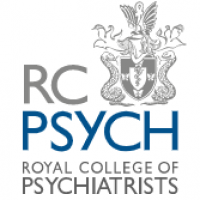The importance of sleep for your mental health
The average person sleeps for around a third of their life. The NHS says that one in three of us suffer from poor sleep in the UK, the main culprit being stress. Besides allowing the body to repair itself, an adequate amount of sleep can also prevent weight gain, illnesses and improve mental health.
The recommended amount of sleep for an adult is around eight hours per night. This varies from person to person and some may need more, whilst others can function on less.
Lack of sleep can have a negative impact the following day, often with feelings of irritability and tiredness, both can result in poor performance at work or finding it difficult to concentrate on daily tasks. Lack of sleep can lead to increased risk of mistakes or accidents.
There is evidence proving that sleep deprivation has a negative impact on our mental health. It is suggested that a good sleep can reset the brain ready for emotional challenges the next day. In fact, living with a mental health problem can affect how well you sleep and poor sleep can have a negative impact on your mental health.
Psychological effects of a lack of sleep:
- Low mood
- Anxiety
- Irritability
- Erratic behavior
- Poor cognitive functioning and performance (e.g. forgetfulness, making mistakes and slower thinking than normal)
- Psychotic episodes
Why is sleep essential for a healthy life?
- Lower risk of illnesses including heart disease
- Prevents signs of depression
- Lower weight gain risk
- Greater athletic performance
- Better productivity
- Encourages a stronger immune system
Tips for better sleeping:
Get into a routine:
Going to bed and at the same time each night, including on the weekends makes it easier for our body to adjust to the same routine. You should also aim to wake at the same time each morning. Here it’s important to set realistic targets around your work and life schedule. If your work schedule relies on shifts, then extra care needs to be taken here.
Start thinking about bedtime 1 hour before:
It’s important to ‘wind down’ an hour before going to bed. This could be taking extra steps to relax, avoiding blue light on our phone, tablet or television. Instead, try reading a book, listening to the radio or having a bath.
Cut back on caffeine and alcohol:
Having drinks containing caffeine could be keeping you awake at night. Try to avoid drinks containing caffeine (including tea, coffee, energy drinks) for 4-6 hours before you plan on going to bed.
Keep a sleep diary:
Keeping a sleep diary can help you to notice patterns where things could be affecting your sleep routine. Try to log the approximate time it took you to fall asleep along with wake up/bedtime times. It could also be helpful to log your activities before bedtime.
Try not to smoke before bed:
Nicotine is a stimulant so can contribute towards getting a poor night’s sleep.
Your mental health is just as important as your physical health and can be harmed by lack of sleep on a regular basis. If you are worried about your mental health and require help and advice, we are happy to book you in to see Dr Behzad Basit, a leading Psychiatrist in London.
Dr Behzad Basit is an experienced Psychiatrist with his medical career starting in 1988. Dr Basit been described by patients and colleagues as very approachable and can help patients experiencing anxiety. His background in general practice, psychiatry and psychotherapy enables him to take a holistic approach in assessment and management of patients.









